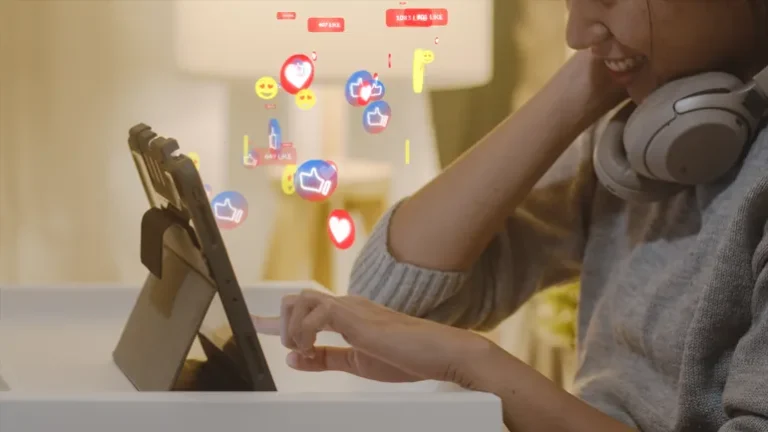The biggest change in social media marketing over the past five years isn't short-form video or the development of generative AI. From a marketing-specific perspective, the key evolution is the shift from interaction to pure entertainment.
Of course, one could argue that entertainment has always been a key component of marketing, but in the early days of social media, the core focus for brands was to inspire interaction and drive engagement by providing an avenue for target customers to get in touch and respond to their brand presence.
This has become even more important with the introduction of algorithms, where more comments and likes equals more reach. Engagement remains a key factor, but the platforms themselves are also refocusing on time spent on each app, rather than just encouraging likes and comments.
It's all thanks to TikTok.
For years, Meta has dominated social media, determining the trends and norms that guide how users interact with each other. Meta has learned that comments and interactions are what keep users coming back, so its algorithms prioritize posts that spark more of these behaviors.
This unintentionally encouraged more divisive and controversial opinions, because the content most likely to provoke a response is content that evokes high emotional resonance: joy, fear, and anger are the primary emotions that drive responses, and unsurprisingly, the algorithm changes made these the primary drivers of online activity.
However, TikTok has flipped the paradigm and changed the way all platforms operate today.
TikTok has emphasized public posts rather than relying on connections, focused on time spent rather than likes and comments, and incorporated more metrics from each clip to refine the recommendations it shows each person.
Essentially, TikTok has reorganized the social media matrix around entertainment, which is a huge thing because the actual “social” aspect that was the focus for so long has now been relegated to a secondary level.
And that also means your social media marketing strategy needs to be re-adjusted accordingly.
Don't believe us? Need more convincing?
What about the fact that 50% of the content users see on Instagram is now provided through AI recommendations?
These aren't posts from friends and family, or content from accounts you've chosen to follow, and Instagram isn't so much interested in getting likes and comments, the key metrics are the time you spend watching and how quickly you skip (or don't skip) through each video.
Facebook usage is also on the rise, with 30% of the content users see on Facebook now being served via the same AI recommendation system.
But here's an important consideration: although time spent on Facebook increased as a result of these topic recommendations, Creativity and engagement continues to decline, with fewer people posting to both Facebook and Instagram than before.
This is especially true for younger demographics, but notably, usage of Instagram Stories is also on the decline, down more than 10% from previous levels.
People spend a lot of time watching AI-recommended video clips, but are less and less likely to comment or engage beyond watching. As a result, social media is becoming less and less social and more like traditional media with interactive elements.
From a marketing perspective, you may need to shift your focus away from comments-inducing posts and towards pure entertainment as a result.
Inducing engagement has long been a key tenet of social media marketing because, as mentioned above, platform algorithms have prioritized content that generates a direct response. But now, nearly all platforms are prioritizing time spent primarily through video clips.
And in that scenario, the most entertaining content will win, not the posts that make users think.
And this will become even more prominent given the rise of generative AI: While generative AI tools can create human-like images, text, and video clips, they can't create truly creative concepts — or at least, not so easily if you can't come up with a concept yourself.
For example, I asked ChatGPT to give me ideas for “quirky and fun campaigns to promote our new lemonade brand.”

Sure, #SqueezetheDay isn't bad, but the tag itself is already being used by many juice bars and designers in both online and offline promotions. This highlights a key problem with using AI generators for this purpose: most of the concepts such a system produces will end up being fairly generic and unlikely to be embraced in the new entertainment-focused social media environment where concepts become increasingly important.
The challenge with AI generators in this sense is that they are derivative in nature, as the system can only iterate on what came before, so anything it spits out ends up feeling somewhat formulaic and repetitive.
That's because the system is just providing variations of what it conceptually understands from the terms you input: it uses “lemonade” or “promotion” etc. and generates concepts based on what it can match based on previous uses of these terms within a given scope.
So while anything coming out of an LLM-based system can feel a bit dated, the most entertaining content is fresh, interesting, and generally a new take on old ideas.
Can generative AI systems generate great ideas? Yes, they can, but because they aren't systematically designed to do so, AI tools are unlikely to be the source of your next great concept.
But either way, AI tools are becoming more and more used, which may further increase the value of truly unique and interesting concepts among the wave of ideas spewed out by AI systems in the past.
Essentially, increased time spent on entertainment and content will drive social apps to expand their reach, forcing platforms to move further away from their social roots in line with user behavior.
Past best practices like engagement bait, hashtags, and calls to action will become less important as more platforms focus on AI-driven recommendations.


